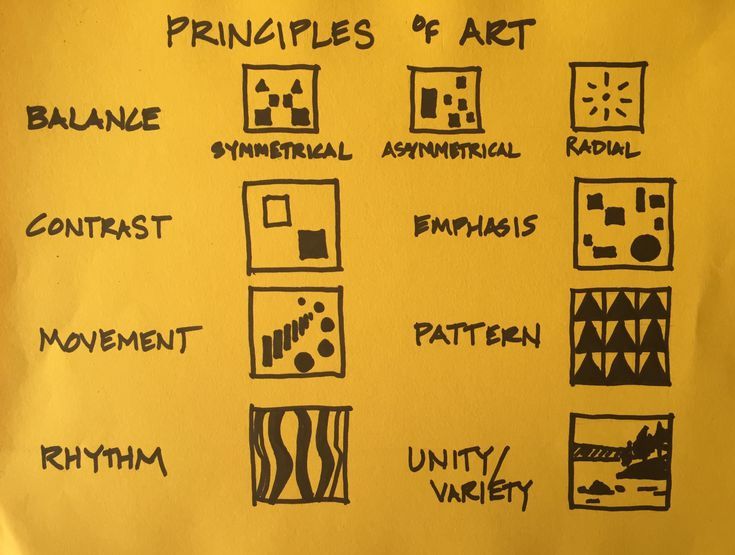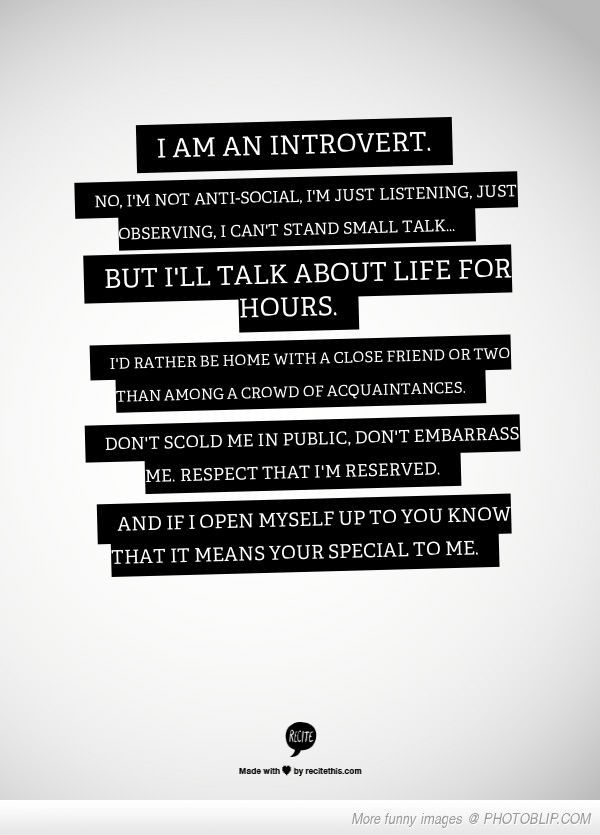When people shut you out
How to Communicate with Someone Who Shuts Down
Stonewalling during an argument may protect you from psychological overwhelm, but to your partner, it can come off as deliberate avoidance.
Feeling ignored when you’re in an emotionally charged moment can be frustrating. You’re trying to work through an issue, but suddenly someone shuts down and goes unresponsive.
This reaction is known as stonewalling. From the outside, it can feel like that person has shut down emotionally.
If you’re the one shutting down, however, you may be inwardly dysregulated.
What to do when someone you love shuts down
- take a break from, or “table” the conversation
- write down your thoughts and feelings to revisit later
- stay calm
- don’t retaliate
- don’t throw an adult temper tantrum
- do something self-soothing
- consider professional intervention
The need to “check out” when you’re being bombarded with negativity can be a natural reaction. You may be feeling frustrated yourself, or maybe you’re uncomfortable with the tension.
Without an immediate solution in sight, it can feel easier to pretend your person is invisible. You may stop responding or making eye contact. You might start excessively cleaning to signal you’re done with the conversation.
Keep in mind your shutting down doesn’t make you look good (and doesn’t help anything)
Being aware of how stonewalling is received can help you bring yourself out of it.
If you shut down during intense communication, the other person may feel rejected or devalued. It can appear like you don’t care about them or what they have to say.
They may not understand why you shut them out. It can make them angry or frustrated, and they may retaliate with their own silent treatment.
This can create a cycle of silence and hurt feelings.
Communicate calmy, clearly, and assertively
Shutting down when you’re upset — whether deliberately or as a defense mechanism — doesn’t usually solve the problem at hand.
To reach any solution or compromise, most issues require communication to understand the big picture.
- Communicating calmly helps keep the energy neutral. If you go into something looking for a fight, you’ll probably find one.
- Communicating clearly can help get your points across quickly and can help prevent misunderstandings about intent.
- Communicating assertively doesn’t mean communicating aggressively. Being assertive often means approaching an argument using “I” statements instead of “you” statements.
Asserting how a situation makes you feel rather than blaming or accusing the other person can avoid putting them immediately on the defensive.
A 2009 study found that couples rated communicating anger in an assertive way as more successful than approaching anger from a place of denial or passive-aggressiveness.
Learn to self-soothe healthily
Self-soothing may help you disengage from an emotional lockdown by shifting your energy.
Self-soothing activities, such as reading, meditating, or exercising, can help you regain a sense of calm after an argument.
Though there are many ways to relax, options such as smoking or drinking may cause you more complications down the road.
Write down your thoughts
In the moment, it may be a challenge to get out all the things you want to say. Feeling frustrated by not being able to express yourself may make you feel there’s no point in trying.
Writing your thoughts down can help maintain the dialogue between you and your partner when you revisit the conversation later.
How to open back up after you’ve been giving the silent treatment
- “I understand what you’re saying…”
- “I feel…” or “When you … I feel…”
- “I’m sorry I said…” or “I’m sorry I didn’t…”
- “I need some time to collect my thoughts.”
- “Let’s take a break but pick another time to discuss…”
- “I’m not upset with you. I’m just feeling overwhelmed…”
When you feel like someone shuts you out, it can hurt.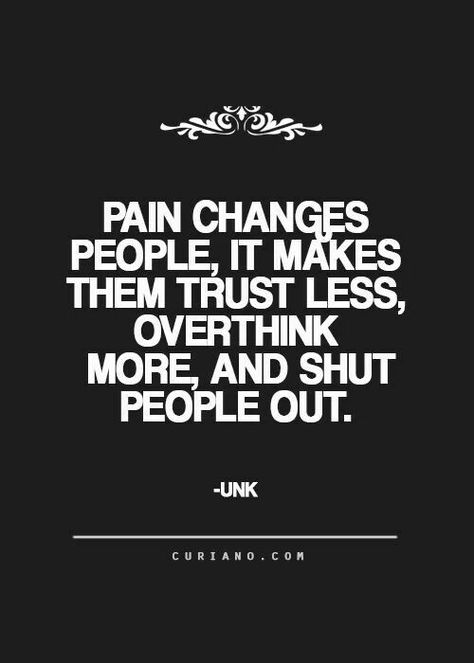 You may feel unwanted or unappreciated.
You may feel unwanted or unappreciated.
Understanding where stonewalling comes from can help keep negative reactions at bay and can help you identify when your partner is overwhelmed or deliberately avoiding.
Keep in mind it’s not about you
Stonewalling isn’t always your partner punishing you for a heated conversation.
For some people, shutting down emotionally is a response to feeling overstimulated. It doesn’t have anything to do with you or how they feel about you.
If your husband or partner shuts down when you cry, for example, it may be because they don’t know the best way to handle that display of emotions. It’s not that necessarily they don’t care about you or value your feelings.
Set mutual expectations
Having an agreed-upon approach to debates and arguments may help disengage stonewalling if it happens.
Allowing back-and-forth replies, having a safe space for debates, and knowing when to stop and decompress can all be fundamental rules for heated conversation.
(Re)set boundaries
Sometimes the things you say during an argument are deliberately hurtful. Setting conversation boundaries, and reaffirming them during calm times, can prevent those damaging quips that can’t be unsaid.
Let them know how their silence affects you
Most people who truly care about you don’t want you to feel hurt. Communicating to your partner that their silent treatment or emotional shut down upsets you can help them realize its impact.
What to say to someone when they are shutting you out
- “I understand you’re feeling…”
- “I’ve given you a lot to consider. I’ll give you time to digest.”
- “Let’s take a breather and come back to this another time.”
- “I’m sorry I said…” or “I’m sorry I didn’t…”
- “I’m not upset with you. I’m feeling…”
- “When you ignore me I feel…”
Now that you have more insight into why stonewalling happens, you can help prevent it in both yourself and your partner.
Sometimes, stonewalling becomes a form of mistreatment in a relationship. When it’s done deliberately, with the intent to punish the other person, it may require the intervention of a professional.
Resources for couples looking to find ways to overcome stonewalling include:
- The 7 best online couples therapy services in 2021
- The 9 best affordable therapy options in 2021
- The 6 best online marriage counseling services in 2021
- How to create emotional safety in a relationship: 7 tips
- What is a couples retreat and why should you plan one?
Relationship woes? Our advice columnist wants to hear from you!
Submit your anonymous questions here for Sex, Love, and All of the Above from Psych Central sex and relationships writer Morgan Mandriota. Then subscribe to our weekly newsletter to find out if your question is featured.
Emotional Dysregulation: Definition, Causes, and Treatments
In research, clinical and therapeutic settings, we sometimes use the term Affect Dysregulation. Affect is the clinical term that is used to describe emotions and feelings. Many practitioners also use the term Emotion Dysregulation. Essentially, Affect Dysregulation and Emotion Dysregulation are interchangeable terms in the psychiatric literature.
Affect is the clinical term that is used to describe emotions and feelings. Many practitioners also use the term Emotion Dysregulation. Essentially, Affect Dysregulation and Emotion Dysregulation are interchangeable terms in the psychiatric literature.
What is Affect/Emotion Dysregulation?
Emotion Dysregulation may be thought of as the inability to manage the intensity and duration of negative emotions such as fear, sadness, or anger. If you are struggling with emotion regulation, an upsetting situation will bring about strongly felt emotions that are difficult to recover from. The effects of a prolonged negative emotion may be physically, emotionally, and behaviorally intense.
For example, an argument with a friend or family member may cause an over-reaction that significantly impacts your life. You can’t stop thinking about it or you may lose sleep over it. Even though on a rational level you feel it’s time to let it go, you are powerless to control how you feel. You may escalate a conflict to the point it is difficult to repair, or you may indulge in substances to help yourself feel better, thus creating further stress for yourself and others.
You may escalate a conflict to the point it is difficult to repair, or you may indulge in substances to help yourself feel better, thus creating further stress for yourself and others.
Where does it come from?
The evidence linking early childhood interpersonal trauma and emotion dysregulation is robust. Post traumatic stress disorder (PTSD) and complex post traumatic stress disorder (C-PTSD) often result from child maltreatment. Emotion dysregulation has long been recognized as a central symptom of trauma disorders (van Dijke, Ford, van Son, Frank, & van der Hart, 2013).
There is also evidence that trauma (and as a consequence, emotion dysregulation) may be transmitted from parent to child. Research investigating holocaust survivors and Aboriginal populations in Canada demonstrate that the children of surviving parents tend to struggle with symptoms of trauma such as debilitating depression, unexplained grief, and an increased vulnerability to stress (Kirmayer, Tait, & Simpson, 2009; Kellermann, 2001).
Why don’t we all just have effective emotion regulation?
It is important to understand that children are not born with emotion regulation capabilities. An infant is biologically immature and is therefore physically incapable of soothing himself during times of upset. This is why a nurturing relationship with a caregiver is so important to the healthy emotional development of a child. As the child grows, he or she learns emotion regulation skills from parents and other important adults such as teachers or close relatives. For example, the child may be taught helpful ways to think about problems rather than become overwhelmed when facing a challenge.
A child raised in a healthy environment will be taught to ask an adult for help — and then will typically experience assistance. Instead of feeling sad or anxious about a problem, children with healthy caregivers will learn that they can reach out for comfort and receive comfort when experiencing a problem. This is only one example of how a child learns skills to cope with challenging emotions.
In contrast, children raised by parents who are struggling with PTSD or C-PTSD often do not have the opportunity to learn emotion regulation skills. A traumatized parent who is unable to control their own emotions is unlikely to have the ability to help their child. In some cases, the traumatized parent may escalate the child’s distress with angry or fearful reactions to the child’s problems. In these cases, the child does not have the opportunity to learn valuable emotion regulation skills while growing up.
What is emotion dysregulation associated with?
Emotion dysregulation is associated with many psychiatric disorders such as major depression, PTSD and C-PTSD, Borderline Personality Disorder, and substance abuse.
It is common for those suffering with emotion dysregulation to experience difficulty with interpersonal relationships. Extreme emotional reactions and difficulty resolving conflicts, adds stress on personal and professional relationships.
Many individuals suffering from emotion dysregulation may turn to alcohol or drugs to find relief from upset and stress. These behaviors add additional challenges to career and family relationships as well as take a toll on physical health.
These behaviors add additional challenges to career and family relationships as well as take a toll on physical health.
Emotion regulation is essential for healthy functioning (Grecucci, Theuninck, Frederickson, & Job, 2015). If you experience emotion dysregulation, you should consider seeking qualified help.
What treatments are available?
Building a strong and supportive therapeutic relationship is helpful for those struggling with emotion dysregulation.
There are cognitive and behavioral interventions that have been shown to be effective in building emotion regulation skills. Cognitive-behavioral techniques focus on using conscious thought and behavior to regulate emotions (Grecucci et al., 2015). In therapy, opportunity is provided to learn the skills needed to regulate your emotions and start you on the path to healing.
References:
Grecucci, A., Theuninck, A., Frederickson, J., & Job, R. (2015). Mechanisms of social emotion regulation: From neuroscience to psychotherapy. Emotion regulation: Processes, cognitive effects and social consequences, 57-84.
Emotion regulation: Processes, cognitive effects and social consequences, 57-84.
Kellermann, N. (2001). transmission of Holocaust trauma. Psychiatry, 64(3), 256-267.
Kirmayer, L.J., Tait, C.L., & Simpson, C. (2009). The mental health of Aboriginal peoples in Canada: Transformation of identity and community. In L.J. Kirmayer & G.G. Valaskakis (Eds.), Healing traditions: The mental health of Aboriginal peoples in Canada (pp. 3-35). Vancouver, BC: UBC Press.
van Dijke, A., Ford, J. D., van Son, M., Frank, L., & van der Hart, O. (2013). Association of childhood-trauma-by-primary caregiver and affect dysregulation with borderline personality disorder symptoms in adulthood. Psychological Trauma: Theory, Research, Practice, and Policy, 5(3), 217.
Unimaginative: "Closing my eyes, I see nothingness"
- Helen Thomson
- BBC Future
Image copyright Thinkstock
Image captionWhen you can't visualize, you can't even build castles in the air
Imagine what it's like to realize that you've never been able to visualize anything in your entire life whatever it was. The BBC Future columnist spoke to a 42-year-old man whose inner world is completely devoid of visible images.
The BBC Future columnist spoke to a 42-year-old man whose inner world is completely devoid of visible images.
Close your eyes and imagine the face of your loved one - what color are his eyes, how does his hair feel, what does his skin look like... Did it work? But Philip never did.
42-year-old Philip, a photographer from Toronto, Canada, is happily married but cannot see his wife's face with his inner eye because his inner eye is blind.
When he thinks of someone's face, it appears to him as an entity, as a speculative concept, but not as a mental image.
This feature, which has been called "aphantasia", has been described more recently and has prompted scientists to rethink their views on the phenomenon that we so often take for granted - our imagination.
- Our brain is capable of incredible things, but consciousness interferes with it. , which can help strengthen memory, increase empathy, and even develop new ways to treat addictions and anxiety.

Aphantasia was first diagnosed in 1880, but recently the phenomenon has received increased attention from scientists thanks to a 2015 study by Adam Zeman and colleagues at the University of Exeter (UK).
British scientists studied the testimonies of more than two dozen people who claim to be unable to mentally reproduce images.
Image copyright, Getty
Photo caption,People with aphantasy think in words and concepts, but not in images
In some cases, Zeman identified sporadic involuntary flashes of visualization during sleep and wakefulness, although participants claimed to be unable to mentally recall any image at will.
In addition, most of the volunteers reported having difficulty remembering events that took place in the past. Probably, this inability to visualize was compensated by their talent for mathematics, logic, and verbal problem solving.
Skip the Podcast and continue reading.

Podcast
What was that?
We quickly, simply and clearly explain what happened, why it's important and what's next.
episodes
End of Story Podcast
Philip's case is a classic example. When he sleeps, he sees in his sleep the same visual images as all of us, but when he is awake, he is completely unable to recreate any picture in his mind.
"When I close my eyes, all I see is the inside of my eyelids. Just a void," he says.
"When I was told 'imagine' or 'try counting sheep', I thought they were just talking about it figuratively."
If you are able to mentally see images, it is very difficult to imagine how you can live without it.
To understand what a "blind inner eye" is, try thinking of some abstract concept such as "world".
With the exception of metaphorical images like a dove, no obvious images come to mind, but you can understand and imagine what it is.

Image copyright, Getty
Image caption,Analyzing another person's mind is inherently difficult, but scientists have found several ways to see him.
"It's very hard to explain what happens when I think about such things," he says. "For example, if I try to imagine my father's face, I know he has blue eyes, I remember the size of his nose, but no I can't describe any other details, because I can't call his face to mind. I don't see anything."
Imagine
In order to understand how the images in each of our heads differ, it is necessary to learn how to measure them - however, analyzing the thoughts of another person is, by definition, difficult.
An employee of the University of New South Wales (Australia) Joel Pearson found a way: he learned not only to objectively measure the imagination, but also to manipulate it.
To do this, he uses the "binocular rivalry" method.
 This simple method is based on the fact that a person is presented with two different images for a short time - say, green stripes and red dots - one in front of the left eye, the other in front of the right.
This simple method is based on the fact that a person is presented with two different images for a short time - say, green stripes and red dots - one in front of the left eye, the other in front of the right. The brain cannot merge these two images into one coherent image, and instead one image is suppressed and another is perceived.
This process can be manipulated by tuning the brain to one of the images.
So, if you show it to a person before the start of the task, with the subsequent simultaneous presentation of both images, the brain is more likely to perceive it.
Image copyright, Getty
Image caption,Aphantasy can make it difficult to perform simple tasks, such as finding your car in a parking lot
The same thing happens if a research participant is asked to imagine one of the images: when performing subsequent tasks, the probability of perceiving this particular image increases.

At the same time, the more vivid a person's imagination, the more likely it is to see this image in the course of the next experiment.
Pearson conducted hundreds of such studies and found a way to measure the power of a person's imagination.
Now everything is clear
Philip only recently learned that he sees the world differently than all people.
On the Internet, he came across a recording of a program about aphantasy and the inability to mentally see images. According to him, it was a complete surprise for him.
"I thought: what? Are you saying that someone can do it?". It seemed to him that this was a joke, and he decided to test it on his four-year-old daughter.
"I asked her if she could imagine an apple and she said, 'Yes, it's green.' I was shocked."
Suddenly many things in life became clear. He always had a terrible memory.
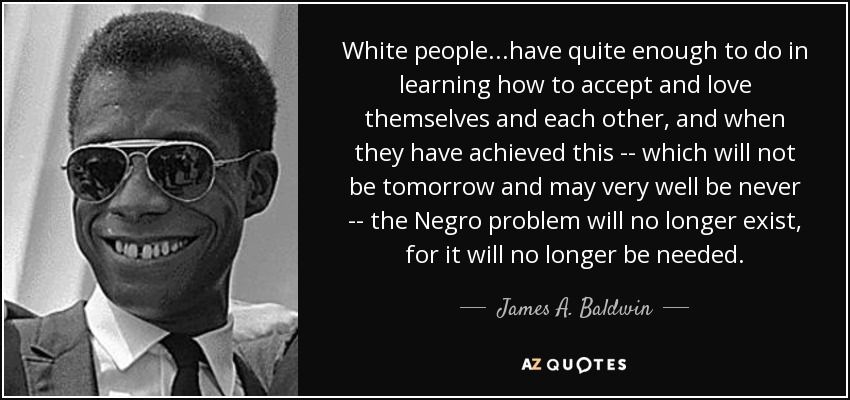 "I'm very bad at remembering names and faces of people, but now I know that others just imagine them externally and, of course, it's easier for them to remember such things."
"I'm very bad at remembering names and faces of people, but now I know that others just imagine them externally and, of course, it's easier for them to remember such things." He also has difficulty finding his car in the parking lot, possibly because he cannot visualize where he left it.
"I always have to take a picture of my car in the parking lot or write down the name of a nearby store, otherwise I can look for it for an hour later."
Image copyright, Getty
Image caption,You may be able to see images in your mind's eye, but some people can't and often live without even knowing it
Recently, Pearson and colleagues analyzed the mechanisms of the brain at the moment when a person mentally imagines various images.
They found that the size of the visual cortex, the region of the brain responsible for perceiving images, correlates with a person's ability to visualize.
In an unpublished paper presented in May at a conference called "The Inner World of the Inner Eye" in Norwich, UK, Pearson also described how less brain activity in this area stimulates the imagination.

This information allows his staff to plan experiments to manipulate the activity of these brain cells through non-invasive brain stimulation in order to change people's ability to visualize.
Scientists hope to reduce the number of intrusive mental images that accompany conditions such as anxiety, addiction and post-traumatic stress disorder.
"We may be able to reduce the strength of this visual," says Pearson.
On the other hand, he believes that this technique can also be useful for developing visualization abilities.
"It's easy to imagine that people might want to develop their imagination to enhance other aspects of cognition that involve this skill," he says.
For example, we know that we can improve memory by creating vivid images in our minds, and that our lack of ability to recall images affects people's moral judgment.
For example, when they are unable to imagine the consequences of their actions, it becomes easier for them to make more "cold-blooded", seemingly logical decisions, which nevertheless may end up causing harm to others.

"Theoretically, one could also manipulate the visualization process to improve witness testimony, make more ethical decisions, improve memory, learning, and so on," says Pearson.
Image copyright Getty
Image caption,Philip asked his daughter if she could imagine an apple. When the daughter replied that it was green, he was shocked.
However, if visualization is involved in so many aspects of everyday life, why don't people like Philip have more serious problems?
"Despite the fact that people who have a developed ability to recreate various images in their minds usually do better at memory tasks," Pearson explains, "people with aphantasy also do well."
"They say they rely on semantics, algorithms or geometry - abstract non-visual strategies."
If the brain is capable of reproducing images, a person uses this ability to solve certain problems - and if not, he usually develops other strategies that can work just as well.
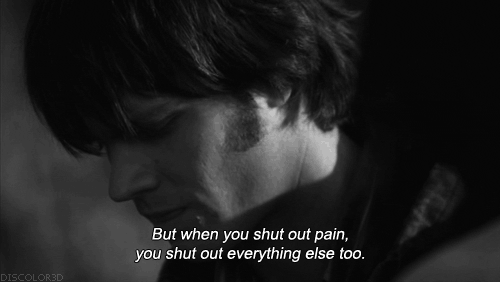 it's in some other area."
it's in some other area." For example, he imitates other people's voices very well. "I can reproduce any voice, any accent. I don't understand why other people have a hard time doing this. I can mentally hear the voices of people, as if they were talking in reality. Perhaps one compensates for the other."
Here and now
If you go to an online forum for people with aphantasy, it quickly becomes clear that many of them find this feature beneficial.
One of the users is convinced that aphantasy helps him to live here and now. "If you can't imagine the future, [then] you can't live in it. The same goes for the past," he says.
The others agree with him. "Because you can't relive any moment, you start to appreciate every moment a little more," says another user.
Philip is also more focused on the present than on the past or the future.
"I don't like to make plans, it's hard for me to think about the future, and I forget what I was going to do if I didn't write it down somewhere, so I usually react spontaneously and I'm very good at doing things off the cuff.
 "
" Other forum members rejoice that they do not have to relive the psychological trauma they have suffered or keep in mind images of terrible or sad moments of their lives.
"I saw my girlfriend convulse from an overdose," says one person.
And just as it can be difficult for us to imagine our inner world without images, it is not clear to people with aphantasy how one or another image can be seen with the inner eye.
One of the forum visitors talks about how she mentally describes each memory or thing in words for herself.
"Words are a wonderful thing," she says. "I almost feel sorry for the people who replace them with images. Of course, pictures are wonderful too, but I prefer my favorite words."
In the meantime, Philip is having a hard time adjusting to his new reality. "It's so strange that it never occurred to me before," he wonders, "that I never imagined how people can imagine any kind of picture.
 "
" "Why has no one ever told me about this? I just can't understand it."
- Read The original of this article in English can be found on the website BBC Future.
You are locked in a room with a computer with Internet access. You have 24 hours to earn 1000 bucks or you will get killed. Your actions?
PopularAlexey Goncharov · ·
406.4 K
Vladimir Vladimir
I am an expert in all expert topics Yandex.Ku ... · 18 AU 2021 Example.com
Watch, will be for it, they will be for it. me to observe or not! If I’m not being monitored, I’ll just call the police, tell the most accurate address, tell me about the conditions that the criminals gave me, and then I’ll start making money in Yandex.Toloka, in case the police don’t arrive on time!
8 rated·
18.
 4 K
4 K Vladimir Skvirsky
28 Aug 2021
Obviously, those who locked up will try to take into account the moment with the police call. I think it's obvious. What needs to be done in ... Read more
Comment on the answer ... Comment ...
Alexander Pavlov
I am a historian, graduated from the Moscow State ... 22 Feb 2021
I would ask people for this money. There is such a thing as crowdfunding. I would tell you straight out. Collected did not collect, but there would be at least a chance. Otherwise, there is no way to earn that kind of money.
6 rated·
8.0K
Comment on the answer…Comment…
Nail Karimov
Therapist of the highest category. Working pension... 20 Mar 2021
Take out a bank loan and place a bet on the underdog or play Russian roulette online like in the movie 13 total or more 1000 per hour or exitus letalis
No ratings
2.
 6K
6K Comment answer… Comment…
Alexandra S.
interests of various fields · 8 Feb 2018 ·
favoritepet
I tweet, where I have a certain number of followers, a request to send money and an explanation that I am being held hostage. If you write eloquently enough, then people will believe. I throw my close friends in vk... Read more
81 rated1.3 K
0011
1. I raise the first 3 dollars on Yandex.Toloka. 2. I register on a freelance site in Russia and China 3. I take some portfolio for money from Toloka on the Chinese site 4.I take orders in the "emergency" style or notify that... Read more . You can learn more about buying a portfolio in Chinese... Read more
Comment reply…Comment…
Elias
Millennial (inst: @p3wx2) May 11, 2018
Go to live sex chat sites like Chaturbate and be a good (or occasionally bad) boy.
The main thing is to rest according to the schedule of activity of the main miser (Russia and the CIS).
2 rated·
336
Comment answer…Comment… Can't you just withdraw the required amount from a card or a web wallet? What kind of perverts caught me. Okay, first turn on the incognito mode. I go to the site for freelancers and create an account (through google... Read more
39 rated3.5K
Comment on the answer… Comment…
Otto Katz
28 Jul 2019
. I am writing that the cops have caught and are demanding a bribe, saying that it is my own fault, and so on. And that shines 8 years of a stricter. If it doesn't work, I'll try... Read more0011
probably works, but somehow cruel sorry grannies all t ki and then, in addition, they will put you in jail at best.
Learn more
